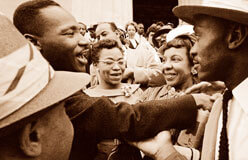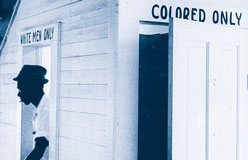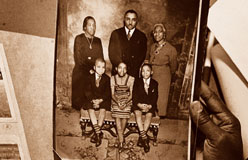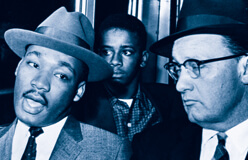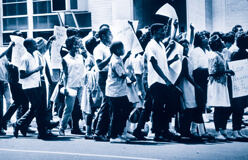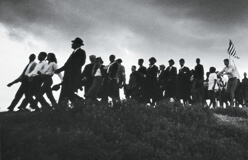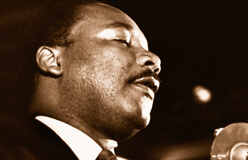In 1964, Martin Luther King Jr. won the Nobel Peace Prize. This award is given almost every year.
It goes to whoever has done the most to promote peace. King was 35 years old. He was the youngest person ever to get the prize. In December, he went to Oslo, Norway, where the awards event was held. When he came home, King was showered with honors. The city of Atlanta, where he lived, gave him a dinner. Black and White people sang the civil rights anthem, “We Shall Overcome.” Only a few years before, King had been arrested in Atlanta for trying to eat at an all-White lunch counter.
King spoke at the dinner. He said, “I must confess that I have enjoyed being on this mountaintop and I am tempted to want to stay here and retreat to a more quiet and serene life. But something within reminds me that the valley calls me in spite of all its agonies, dangers, and frustrating moments.” The valley that called him? It was Selma, Alabama.
